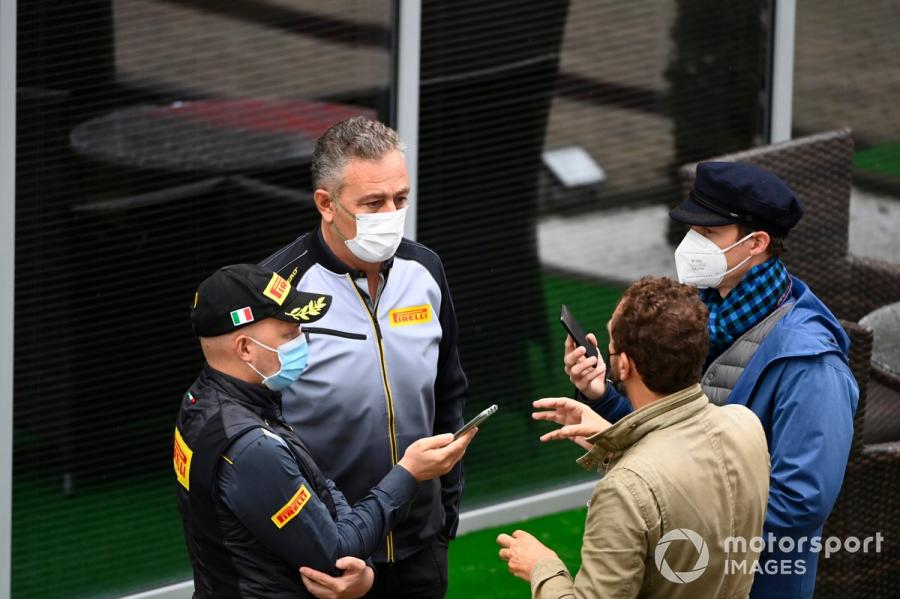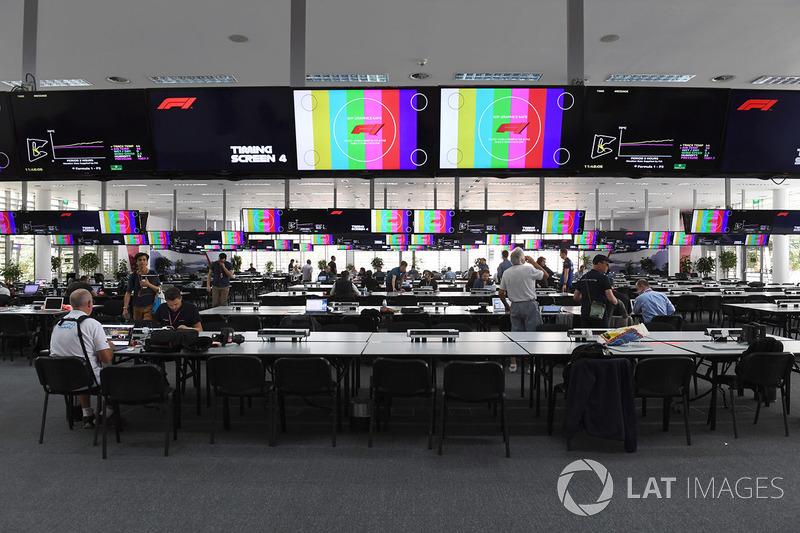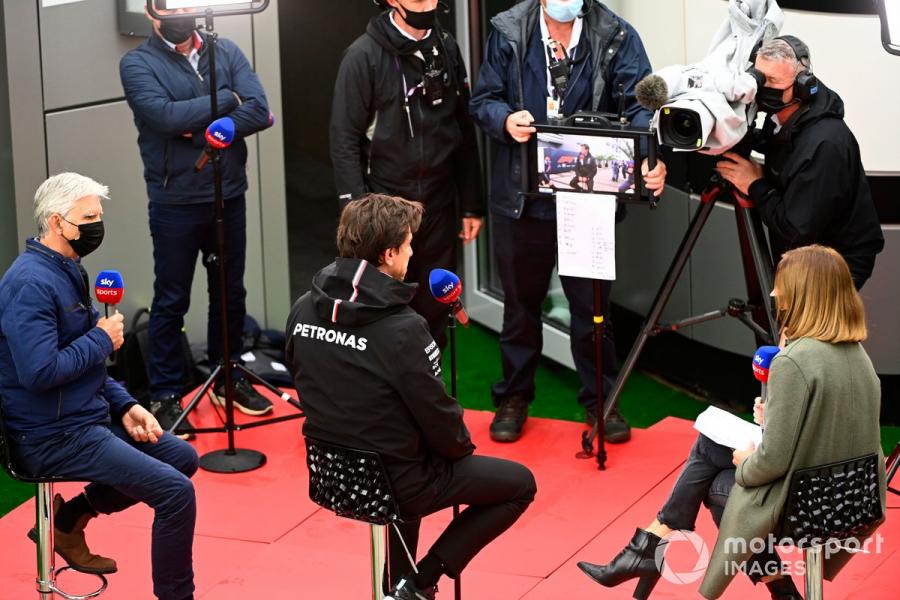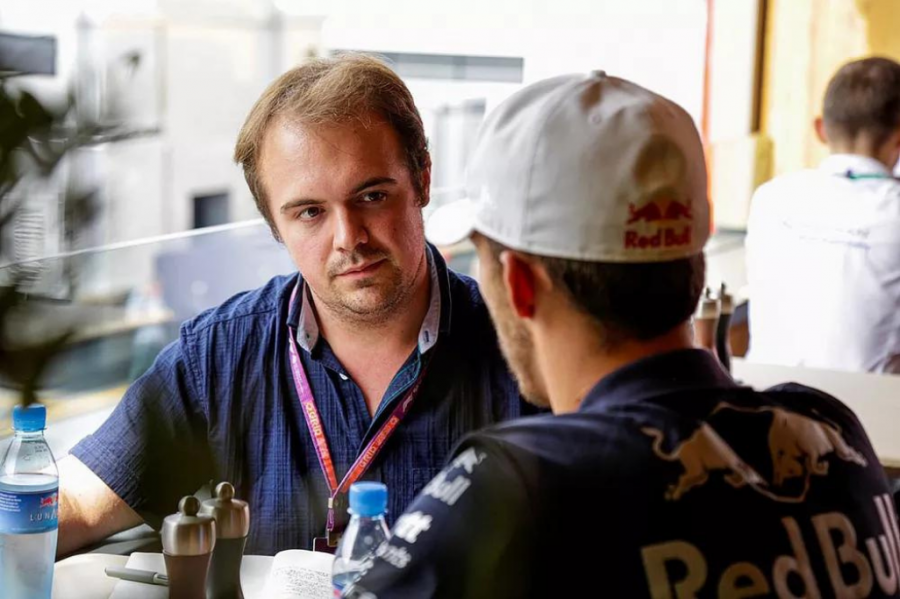For anyone with a passion for motorsport and writing, becoming a journalist seems like the perfect profession; one day you could be interviewing the stars, the next you could be writing race reports or penning an opinion piece. This makes it a highly competitive career to get into, and can make it tougher to stand out and get to where you want to be, but how do you become a Formula 1 journalist, do you need a degree to get into it, and how do you get experience?
To find out we spoke to our own F1 reporter, Luke Smith, to find out.
How do you become a Formula 1 journalist?
It is very rare to find two journalists in Formula 1 with the same career path or route to working in the industry. So the short answer to this – as it will be to many other questions here! – is that there is no single correct way to do things.
My personal route started when I decided to set up a small blog website writing about F1 when I was a teenager. It didn’t get a huge amount of readers to begin with, and I made a lot of mistakes with it. But the big thing it helped me do was write a lot and build up skills from the ground up. The work I put into the website ultimately led to me getting noticed by a broadcaster which led to my first paid work as an F1 journalist back in 2013, which was really the springboard for my career.
But it helps to focus on not just F1 when writing about motorsport. In many cases, F1 journalists started off covering the national scene before working their way across other championships, such as Formula 2 and Formula E before eventually working in F1. The skills are largely the same in terms of producing copy, interviewing people and building up a network of contacts.
If you want to be an F1 journalist, whether you start off by focusing solely on F1 or by covering other championships to work on the skills you need to build up, the learnings will be much the same – but often smaller categories can be easier to break into. The main thing is to have a way to build up a body of work that you can showcase and helps you to develop.

What qualifications do you need?
I often joke that I am one of the least qualified journalists you will ever meet… but it’s true! I studied History at University College London (UCL) for my degree. While it was not directly building journalism skills, it did help me with analytical skills, copywriting through essays and research, all handy tools to have when it comes to being a journalist.
Again, there is not ‘one size fits all’ approach towards gaining qualifications to land a job in the industry. Unlike being a doctor or a dentist, you don’t need specific qualifications to be a journalist. Looking around the F1 media centre, there are people like me who studied humanities, others who did science subjects such as engineering, and some who did do journalism.
It really depends on your interests and approach. If you study something besides journalism at university, you can still develop your skills elsewhere – most universities have a student paper that can be a great place to learn. A direct journalism degree will help you hone exact skills required to work in the field, particularly if you have a specialist interest in something such as broadcast journalism. But it is by no means a requirement to become a journalist.
Outside of university, in the UK, the National Council for the Training of Journalists (NCTJ) offers a diploma that is often part of journalism degrees, helping teach and develop essential skills to work as a journalist, covering areas such as media law and journalism ethics that are important to know.
Again though, there is no one correct approach to picking up qualifications to become a journalist. The main thing will be to demonstrate you have the necessary skills to do the job properly.
What should you study in school?
Unsurprisingly, English is a very important subject for anyone wishing to become a motorsport journalist. I personally took both English Literature and English Language in my A Levels, with both proving useful in helping develop my skills as a writer and learn more about our language. In English Language, I even got to do some analysis of other journalists and media, meaning it directly looked towards what I wanted to do as a career.
Alongside these I also studied History, which I went on to study at university, and again helped me further my writing skills. Economics and Maths have barely been used since leaving school, but I enjoyed studying them!
So it really does depend on your interests. Particularly at a school level, engaging in activities such as a student paper would be more direct in helping develop journalism skills. The main thing is to take subjects that you enjoy – after all, you want to be writing about something that you like!

What other skills are useful?
One of the largest pieces of advice I got from a former Autosport editor when I first got writing as a teenager was to try and build up a ‘toolkit’ of skills. It is something that has stuck with me to this day.
Particularly in today’s world, the idea of journalists being people who simply write is proving to be outdated. Instead it is critical to have as many skills as possible reaching across our industry: podcasting, transcribing, video editing, photoshop, social media – the list goes on.
While they are not directly ‘journalism’ skills in terms of tracking down stories or writing, they are examples of abilities that would impress any potential employer. It also helps give a more well-rounded understanding of the industry. It is impossible to be good at all of them, but having a toolkit of skills that you can build up over time and add to is something that will put you in good stead as a journalist.
Naturally, good people skills are important in terms of building up a network of contacts and people you can talk to. It takes time to build confidence when it comes to interviewing people, but like all things, it comes in time.
But most important is to have a strong work ethic. The nature of F1 journalism means this is not a Monday-to-Friday, 9-to-5 job. It must be tackled full-on and embraced to be successful in the field.
How can I get work experience?
Building up a portfolio is a challenge for any journalist starting out. It was the main reason I opted to set up a blog website when I decided I wanted a career as an F1 journalist, as it gave me a chance to write and get my work out there all off my own back. The flip side of that was that no-one was telling me where I was going right or – more often – wrong, meaning work experience can be far more useful in terms of getting feedback.
The best thing to do is to get in touch with outlets to see what work experience schemes they may offer and how you can get involved. Even if you want to work in motorsport, any journalism experience is good to have, meaning you could get in touch with local papers or websites that may be looking for contributors. So long as you are building your skillset, it is good experience, even if it is not directly in motorsport, and would look great to any publications that do cover racing.
Journo Resources has a great guide to the dos and don’ts of work experience. It is well worth checking out the entire website for more advice on breaking into journalism.
Should I work for free/exposure?
No. Exposure does not pay your bills. Even if you are just starting out, it is not fair for a funded publication to ask you to work for free.
How do I get a job with a magazine or pitch to magazines?
One of the biggest things when it comes to pitching an idea to a publication is to have a clear, original proposal that will quickly pique the interest of the editor whose lap it lands on.
There isn’t one correct way to submit a pitch or to get a job with a publication – but one of the biggest things is to be proactive. If you don’t apply for jobs or try to get in touch with outlets with pitches or ideas, then you definitely won’t be commissioned. Journalism is extremely competitive, meaning work will not simply fall in your lap if you don’t go chasing it.
If you have honed all your skills and have built up various abilities across the industry, applying them to an original idea will put you in good stead to get commissioned or, even better, get a full-time gig somewhere.
It’s a good idea to stay tuned to platforms such as LinkedIn to see what jobs are opening up, as well as when publications are calling for pitches.
Do F1 journalists go to races?
Yes, the majority of F1 journalists do go to races. While the pandemic has complicated travel, Autosport has still been on the ground for every grand prix since COVID-19 hit.
Attending races is crucial to getting facetime with drivers, team principals and other key figures in the F1 paddock, conducting interviews and chats off-the-record to glean added information that can often make or break a story.
On a typical race weekend, I would travel either on Tuesday (flyaways) or Wednesday (European races) before going to the track for the first time on Thursday. Thursday serves as F1’s dedicated media day before we get into the thick of the race weekend with practice, qualifying and the race.
Race weekends can often be so busy that we do not even get to see the city we’ve travelled to for the race until the Monday after the race – and even then, sometimes we have to go straight to the airport to fly home before going to the next one! The airport-hotel-track routine is one that many F1 journalists are familiar with, making chances to explore F1’s fabulous locations ones to grab as they are often fleeting.

What does a race day at work look like for an F1 journalist?
On a typical race day I get up early before travelling to the track, aiming to be in around 8-9am, depending on when the race is scheduled to start. With no running or media duties until the afternoon, race day mornings offer a good chance to scout the paddock for stories and catch up with people before the pressure of the afternoon.
With stories written to tide things over until the race begins, I would then grab some lunch before completing my pre-race prep, things such as making notes, looking up stats etc.
One of the best parts of the race weekend pre-COVID would be going to the grid, something reserved for permanently accredited journalists. It would give a chance to soak up the atmosphere and occasionally grab tidbits of information that can help make a story.
I would then return to the media centre and watch the race from there before a flurry of post-session activity in the paddock. The drivers will take part in media pens where we get the chance to ask questions not long after they’ve stepped out of their cockpits, as well as chatting to team bosses about how things have gone.
Once the initial rush of media sessions is over, I would then transcribe all the necessary audio along with my colleagues before then writing up stories – the biggest ones being first to roll out, naturally. Some of our team focus on writing features (such as driver ratings) while others will begin to think of when to run various bits of news we have picked up in the past few days.
I would then leave the track well past dinnertime before heading back to the hotel to record a podcast, and then finally grab some food before heading to bed.
It’s a long day, but enormously rewarding to cover the sport I love so dearly from the frontline.
